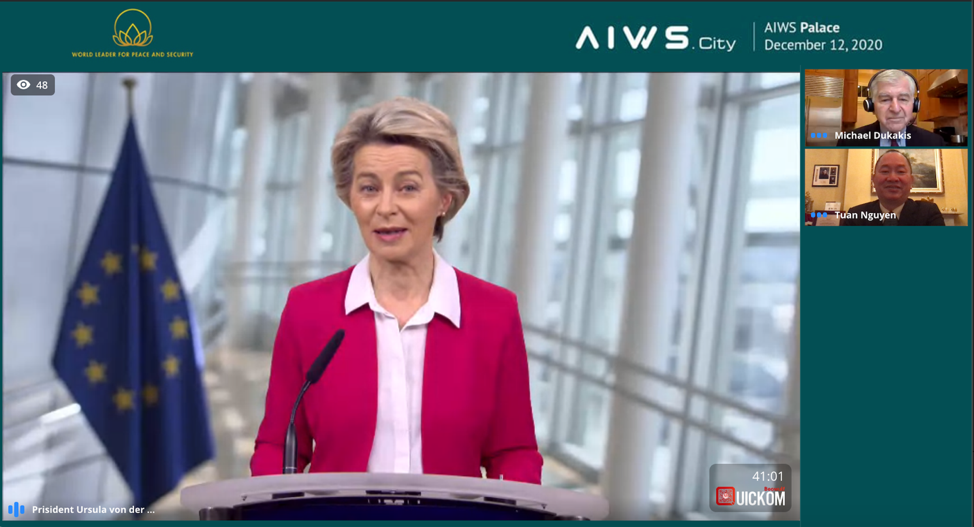
by Editor | Jan 16, 2022 | Global Law and Accord on AI and Digital, News
The European Commission unveiled a new proposal for an EU regulatory framework on artificial intelligence (AI) in April 2021. The draft AI act is the first ever attempt to enact a horizontal regulation of AI. The proposed legal framework focuses on the specific utilisation of AI systems and associated risks. The Commission proposes to establish a technology-neutral definition of AI systems in EU law and to lay down a classification for AI systems with different requirements and obligations tailored on a ‘risk-based approach’. Some AI systems presenting ‘unacceptable’ risks would be prohibited. A wide range of ‘high-risk’ AI systems would be authorised, but subject to a set of requirements and obligations to gain access to the EU market. Those AI systems presenting only ‘limited risk’ would be subject to very light transparency obligations. While generally supporting the Commission’s proposal, stakeholders and experts call for a number of amendments, including revising the definition of AI systems, broadening the list of prohibited AI systems, strengthening enforcement and redress mechanisms and ensuring proper democratic oversight of the design and implementation of EU AI regulation. The ‘EU Legislation in Progress’ briefings are updated at key stages throughout the legislative procedure.

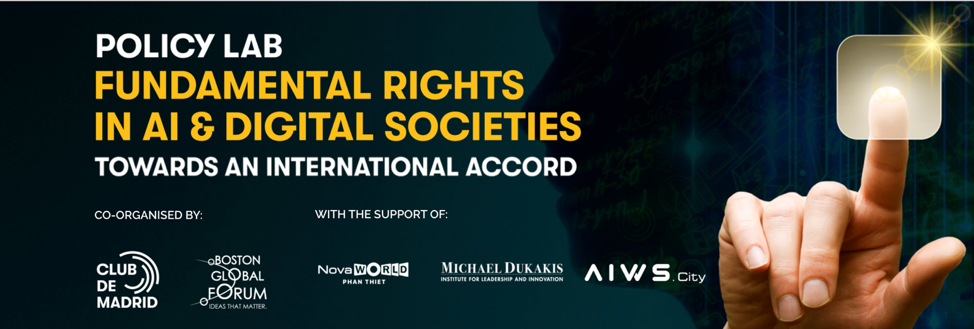
by Editor | Jan 16, 2022 | Global Alliance for Digital Governance, News
Coordinators of Global Alliance for Digital Governance (GADG) proposed actions of Global Alliance for Digital Governance in 2022.
They will focus on:
- An Alliance of companies that respect the Social Contract for the AI Age for GADG market
- AIWS Innovation Ecosystem with standards of Social Contract for the AI Age and in the book “Remaking the World – Toward an Age of Global Enlightenment”
- Global Enlightenment Community for GADG, AIWS values and market in AIWS City
- Building Global Law and Accord on AI and Digital

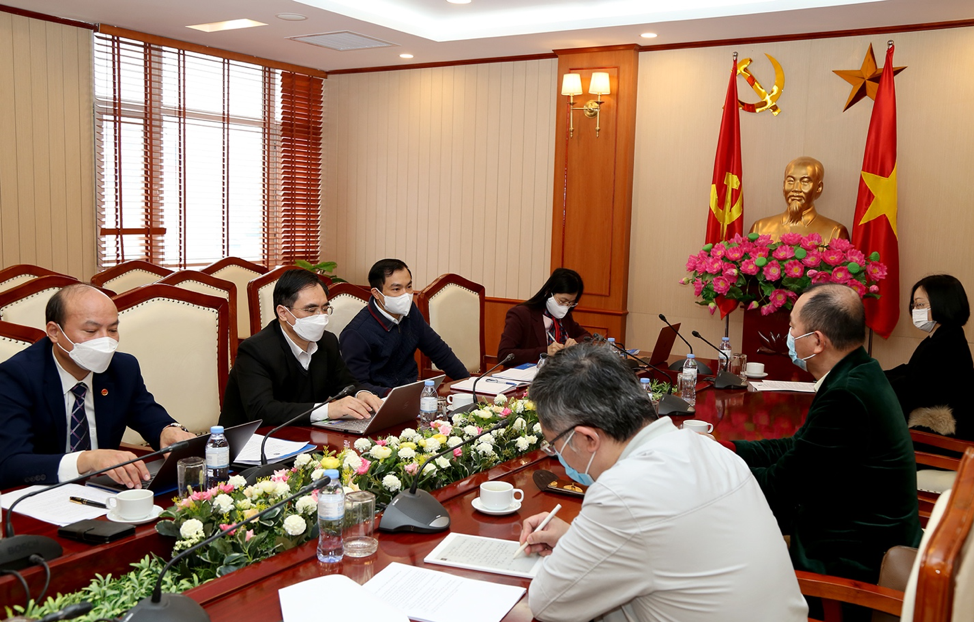
by Editor | Jan 16, 2022 | Event Updates
On the morning of January 13, 2022. Nguyen Anh Tuan, CEO of the Boston Global Forum, Director of the Michael Dukakis Institute visited and discussed with leaders of the Ho Chi Minh National Academy of Politics. Professor, Dr. Duong Trung Y, Vice President of the Academy, hosted the meeting.
Attending the meeting were Mr. Nguyen Manh Hung, Assistant Politburo member; Nguyen Xuan Thang, Director of the Center for International Knowledge Sharing; Mr. Hoang Van Nghia, Director of International Cooperation Department; leaders of the Department of Scientific Management, Department of Training Management; and staff and specialists of the Center for International Knowledge Sharing, Department of International Cooperation.
Mr. Nguyen Anh Tuan discussed with leaders of the Academy to co-organize “the Leadership in the Age of Global Enlightenment” Program with lectures of leaders from USA, Japan, Europe, and Israel, as well as scholars and innovators internationally, contributing to the formation of a mindset and a global perspective for Vietnamese leaders and organizing a forum to discuss national governance model to give accurate, timely, and effective advice and advice to the state of Vietnam, making practical contributions to the process of national construction and development.
In order to further enhance the role and position of Vietnam in the region and in the international arena, Mr. Nguyen Anh Tuan offers that the two sides could study and organize a roundtable conference on world peace and security with the cooperation of the two sides with participation of global thinkers, in which Vietnam will have the important role, selecting core issues of Southeast Asia and Asia – Pacific, thereby seeking new and meaningful initiatives and solutions, mobilizing countries to do the same; demonstrating Vietnam’s role and contributions to the region and the world. On the occasion of preparing to celebrate the 100th birthday of Prime Minister Vo Van Kiet (November 23, 1922 – November 23, 2022), he cordially invited the Academy to participate in the “Conference of Vo Van Kiet and Contributing to Innovation, World Reconciliation”, scheduled to be held in November 2022 at Harvard.
Here is the link of this news on the Ho Chi Minh National Academy of Politics: https://hcma.vn/tintuc/Pages/tin-tuc-su-kien.aspx?ItemID=32048&CateID=240


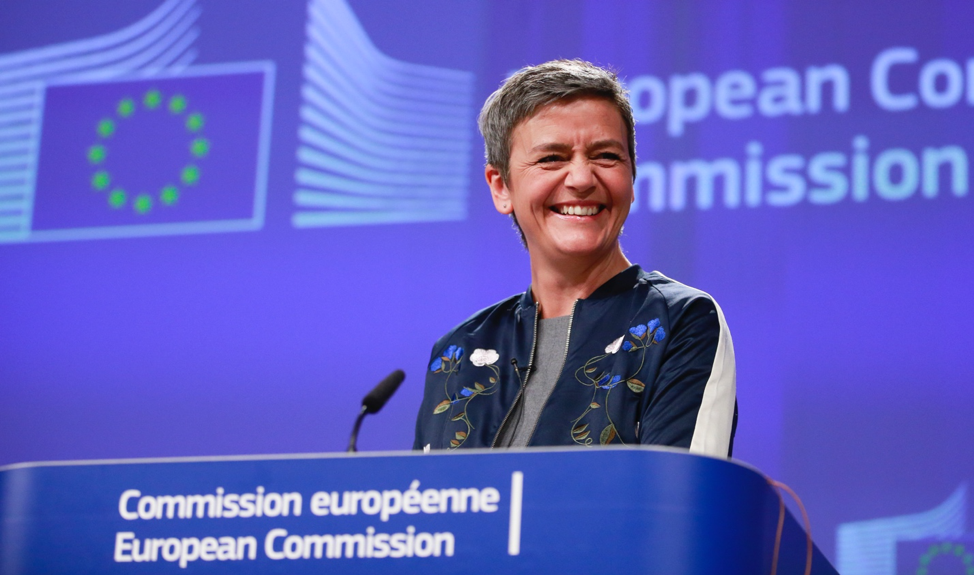
by Editor | Jan 9, 2022 | News, Boston Global Forum Awards
Francesco Lapenta: “I nominate Margrethe Vestager for the History of AI Award 2021 for her efforts to build a global coherent AI, data, and digital infrastructure based on policies and guidelines that promote the trustworthy and human-centric evolution, innovation, and development of AI systems designed to support human creativity and values, protect human rights, and contribute to the ultimate goal of improving the common good and the human condition. I specifically recognize her contribution to leading the European global negotiations for the establishment of global standards, fostering a new “joint technology fair competition policy dialogue,” a new focus on content moderation on digital platforms, and on privacy, providing inspiration to other countries to develop their own privacy laws by 2022. And, in particular, in AI, leading the development and release of a landmark proposal for AI regulation in April 2021, which is proving to be extremely influential globally.”

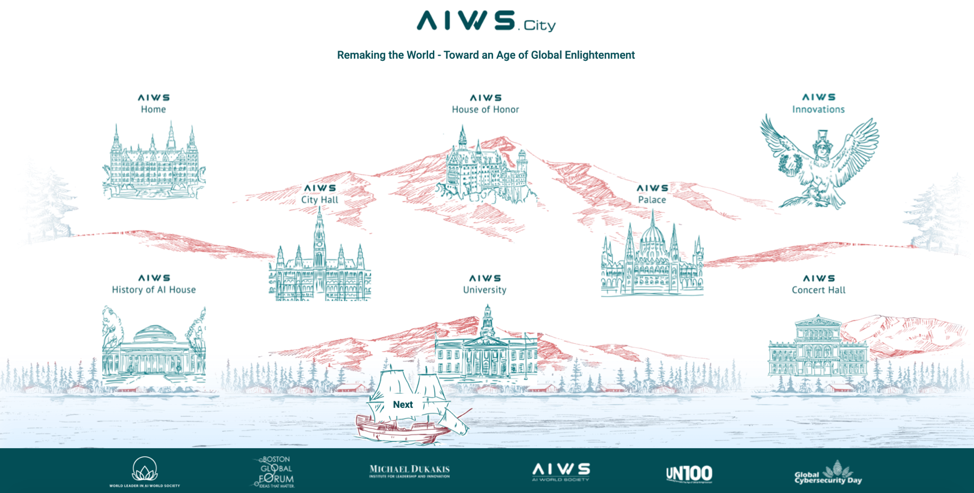
by Editor | Jan 9, 2022 | News, AIWS and the Age of Global Enlightenment
The Global Enlightenment Education Program of AIWS City includes:
AIWS Innovation. Members of the Global Enlightenment Program will be practiced on AIWS Innovation.
The AIWS Innovation will link program members with like-minded individuals in their community, country, and across the globe, enabling them to share perspectives and ideas and to assist each other in the development of innovate and constructive initiatives. It will also be a basis for collective action on universal problems like climate change and digital literacy.
In earlier times, “community” meant the local area. Later, “community” also came to mean the nation in which one resides. Today, because of globalization, “community” also includes the larger world. The AIWS Innovation is not intended to substitute for face-to-face interactions, which create the social capital that enables people locally to work together to strengthen their community. It is meant to supplement such interactions with ones based on a recognition that people everywhere have a common humanity and a shared planet.
Enlightenment Publication. Weekly Insight, a weekly newsletter, will be distributed online to members of the Global Education Program.
Weekly Insight is designed to help individuals build the knowledge, skills, values, and perspectives needed to lead a more fulfilling life and contribute to a more inclusive, just, and peaceful world. It is based on a lifelong-learning model that involves both formal and informal education as keys to developing problem-solving and critical-thinking skills, as well as discovering conventional and innovative paths to participation in the community, nation, and world.

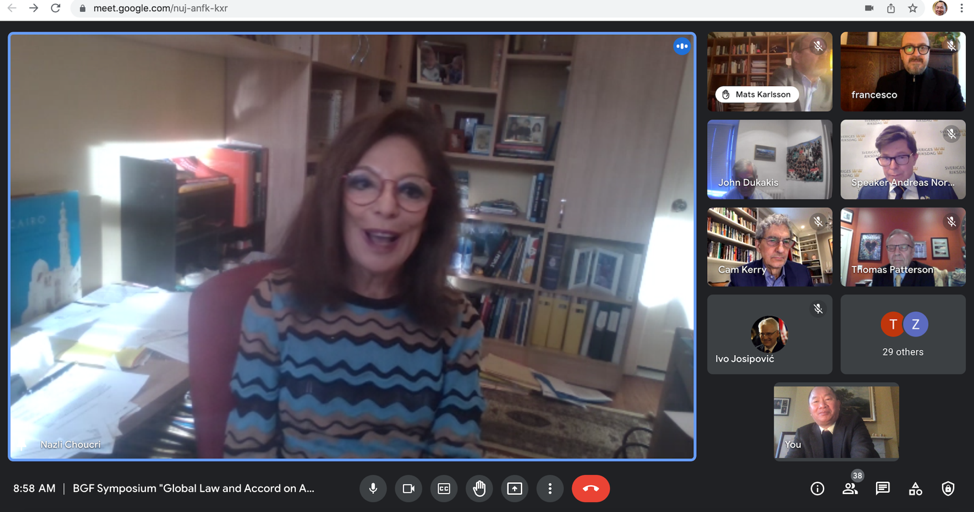
by Editor | Jan 9, 2022 | Global Law and Accord on AI and Digital, Global Alliance for Digital Governance, Event Updates, News
At the Boston Global Forum Symposium “Framework for Global Law and Accord on AI and Digital”, December 12, 2021, Professor Nazli Choucri, Board Member of Michael Dukakis Institute, presented ideas about the Declaration of Action of Global Law and Accord on AI and Digital:
“The intention as I understand the Declaration of Action of Global Law and Accord on AI and Digital is to establish an Action Plan. The vision has been set out in earlier documents and is along the line of a secure, safe and peaceful AI and Digital World.
A more tangible goal would be needed. I suspect that this requires some serious discussion but something like “an international negotiating team is nominated to negotiate an AI International Accord or a Treaty on AI (or AI and Digital)”.
One would then need to identify the steps that need to be taken to realise that goal. The resolution of some key issues, such as the ones just mentioned, would logically form part of the plan. With those fundamental issues resolved, one could seek to encourage lawyers to address other architectural issues ahead of detailed drafting.
A key aim of such a plan would be to share the ideas, and enrich the ideas and seek to get some momentum behind a movement, using a variety of formats
Dialogs
- with political leaders
- with business leaders and innovators
- between political leaders and business leaders
Roundtables with
- governments, EU, UN
- Congress, Parliaments, National Assembly
- Think tanks, thought leaders, universities
- Boston Universities, including Harvard, MIT, Brandeis, Northeastern, Boston University, Boston College, Tufts, UMass Amherst, and
- UK universities (Oxford, Cambridge, London)
- Civil society organizations
Papers, Blogs, Books, Debates, webinars, workshops
One could envisage the group engaging particularly with a set of key developed and developing countries. If a group of countries is really convinced about what you are arguing, then they can take on the wider engagement and political promotion themselves.
As a stepping stone to the ultimate goal, I suggest that it would be important to make the most of the opportunity such as the Secretary-General’s 2023 Summit of the Future, with the aim of obtaining a positive decision to work towards (or investigate) an AI International Accord or the establishment of a global governance system for AI (or Digital and AI – or whatever depending on the outcome of earlier decisions).
Here is the video of her speech: https://www.youtube.com/watch?v=zrTHer6Vst0

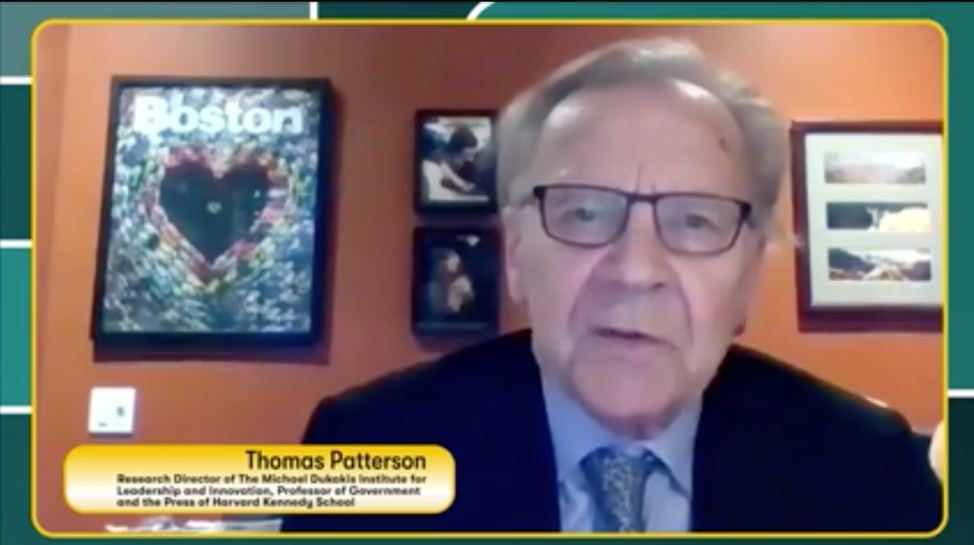
by Editor | Jan 9, 2022 | Event Updates
At 9:00 AM, January 17, 2022, Professor Thomas Patterson, co-founder of Boston Global Forum, Research Director of Michael Dukakis Institute, will give a lecture for the AI World Society Leadership Program 2021-2022.
The goal of our AIWS Leadership Program is to help students understand changing technology and its implications. We’ve created a series of lectures that address major features of the digital age and the challenges and opportunities they present.
Each of our presenters is a thought leader in the field of digital technology. They come from some of the world’s top institutions, including Harvard, MIT, and Stanford. And nearly all of them have spent time in the private sector or government service. They will share with you their high-level practical experience, as well as their scholarly knowledge.
Each lecture is directed at the needs of the innovative leader and thinker – what you will need to know to successfully navigate the challenges and opportunities of the Digital Age.
One of our initiatives is a Social Contract for the AI Age. In this effort, we’ve worked closely with the United Nations Academic Impact Program and with the Club de Madrid, which is the organization of former heads of state and heads of government of democratic countries.
Our Social Contract defines what we see as the rights, obligations, and responsibilities of individuals, governments, firms, and other entities in the digital age.
By definition, a social contract is based on the rights and interests of individuals, and what governments and other entities must do and are prohibited from doing to safeguard those rights and interests.

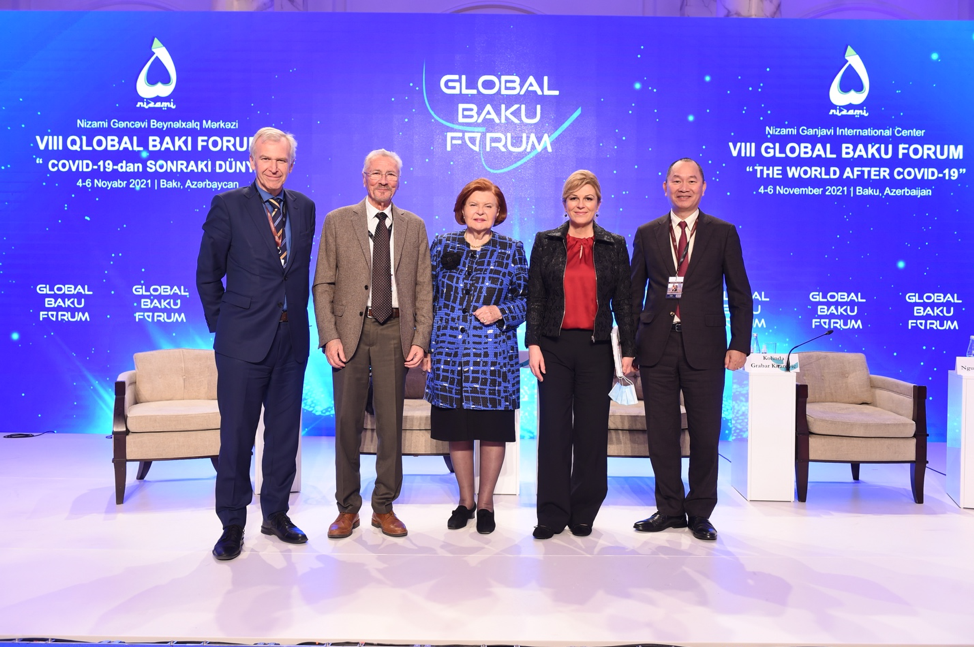
by Editor | Jan 2, 2022 | News, AIWS and the Age of Global Enlightenment
Members of Global Enlightenment Community, such as President Vaira Vike-Freiberga, Prime Minister Zlatko Lagumdzija, father of Internet Vint Cerf, and CEO of BGF Nguyen Anh Tuan, spoke at the Global Baku Forum “The World after COVID-19”
The VIII Global Baku Forum, November 4-6, 2021, attracts great attention and interest of world leaders. At the opening ceremony, addresses were heard from Turkish President Recep Tayyip Erdogan, UK Prime Minister Boris Johnson, Latvian President Egils Levits, Moldovan Prime Minister Natalia Gavrilita, Pope Francis, WHO Director-General Tedros Adhanom Ghebreyesus, former UK Prime Minister, UN Special Envoy for Global Education and World Health Organization, Ambassador for Global Health Gordon Brown and other dignitaries.
The EU was a visionary creation that managed to transform the relations between deadly antagonists into peaceful partners, e.g. France and Germany. It expanded the fruitful collaborations among its members, and increased its membership enhancing peace and prosperity across the continent.
- Can the EU design a unified foreign and defense posture vis-a-vis the rapidly changing world order?
- Can the European parliament become a viable forum for formulating policies that would be binding on all the member countries?
- Can the EU design policies that would resolve favorably the current crises that exist in Europe: e.g. South Ossetia, Abkhazia, Ukraine and Crimea? Or to define policies on such non-consensual issues as immigration?
- Can the EU manage the issues raised by the policies of some of its member states, e.g. Hungary under Viktor Orban?
- Can the EU resolve the remaining issues of the BREXIT decisions?
- How will the EU define it relations with Russia post- Crimea?
Moderator:
– Vaira Vike-Freiberga, President of Latvia 1999-2007; Co-Chair, NGIC (TBC)
Speakers:
– Kolinda Grabar-Kitarovic, President of Croatia 2015-2020
– Yves Leterme, Prime Minister of Belgium 2008, 2009-2011
– Matteo Renzi, Prime Minister of Italy 2014-2016 (Digital Speaker)
– Emil Constantinescu, President of Romania 1996-2000
– Nguyen Anh Tuan, Co-Founder and CEO, Boston Global Forum


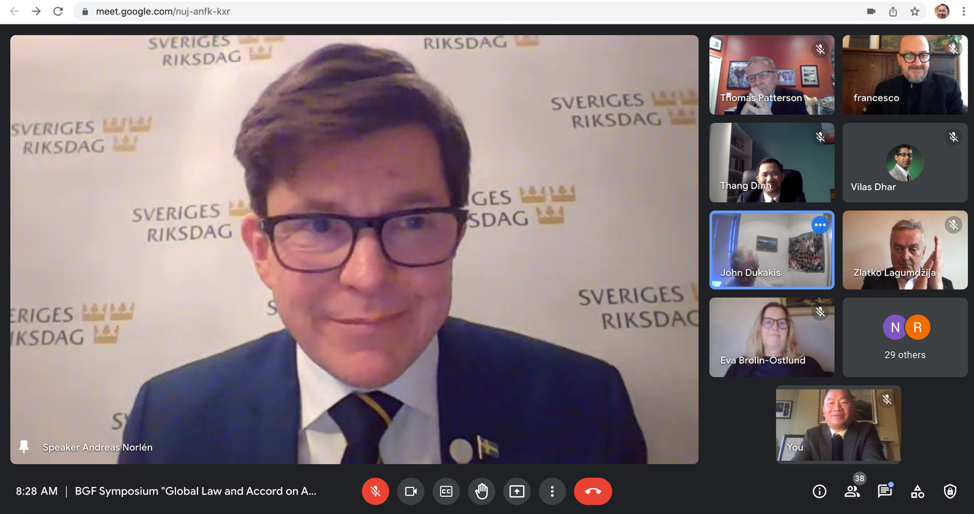
by Editor | Jan 2, 2022 | Event Updates, News, Boston Global Forum Awards
Speaker of the Riksdag, Andreas Norlen, received the World Leader for Peace and Security Award 2021 at the Symposium “Framework for Global Law and Accord on AI and Digital” on December 12, 2021. The World Leader for Peace and Security Award 2015 recipient, former PM Shinzo Abe, presented a speech at this event as well.
Andreas Norlen said:” I want to start by thanking Governor Michael Dukakis and Boston Global Forum for selecting me for the World Leader for Peace and Security Award 2021. I am honoured and proud both for the award and for the opportunity to address you today. Your organisation plays an important role in working for a more peaceful and secure world, for instance by raising both the potentials and risks of artificial intelligence and other digital technologies. Your initiative on Global Law and Accord on AI and Digital is timely and important.”
Prime Minister Shinzo Abe presented his special speech at the Boston Global Forum Symposium “Framework for Global Law and Accord on AI and Digital” on December 12, 2021.
After noting threats and dangers from AI and Digital to peace and security in the world, he highlighted: There are nations that plan to spread disinformation through deep fakes, inciting and brainwashing their citizens.
To solve these issues, he stated “we need to think outside the box.”






















